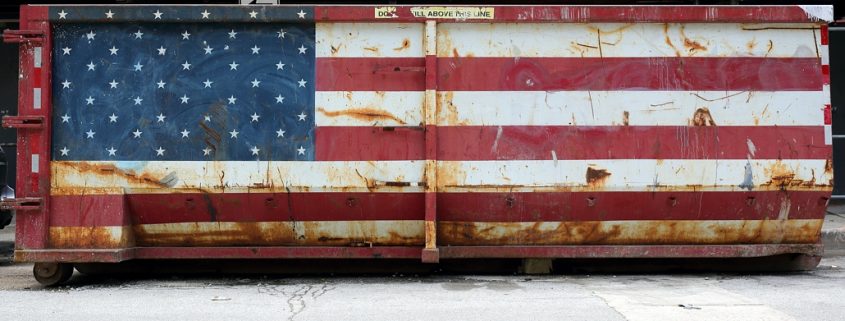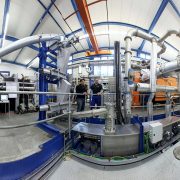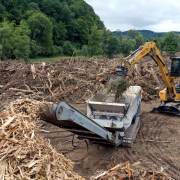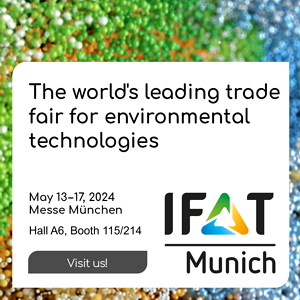USA: Landfilling is No Longer the Easy Way Out
Communities are increasingly embracing the vision of the circular economy. Private investment in recycling infrastructure spurs transition to zero waste.
In Billings, Montana, trash in every variety covered the streets around the local landfill on March 8, 2017. High winds from recent storms in the U.S. Midwest had blown it there. This was not an isolated incident. These types of wind occur several times a year in the area, typically in the spring and fall, each time requiring an army of workers to clean up the debris. The recent developments will make it even harder for the city seeking permission to expand the Billings landfill. This shows that dumping waste is no longer the easy way out for communities in the United States.
One does not have to look very far for more examples. The Pennsylvania Department of Environmental Protection is questioning earthquake safety at its landfills. In Pennsylvania seismic activity has become more frequent with the state‘s extensive fracking for oil and gas. The state of New York is facing a 2.4 billion dollar suit over its landfill in Niagara. Residents say that harmful chemicals are migrating from the landfill, causing health issues. The Environmental Protection Agency (EPA) currently lists 154 complaints against new landfills or requests to increase capacity.
In the U.S. total annual Municipal Solid Waste (MSW) generation has increased by 68 percent since 1980, currently amounting to 254 million tons per year. Per capita MSW generation has increased by 20 percent over the same period of time, from 3.7 pounds (1.67 kg) to 4.4 pounds (1.99 kg) per person each day, or 1,606 pounds (728 kg) per person per year. For comparison, MSW (residential waste) generation per capita in Germany amounted to 618 kilograms in 2014. The EU average was at 474 kg.
Zero waste to landfill is the new buzzword, as the concept of a circular economy has become popular among American communities. The individual states‘ responses to the waste challenge differ as much as they do among the members of the European Union. Yet, government officials, manufacturers and recyclers from West Coast to East Coast have been moving in the same direction. Landfill diversion mandates as ambitious as 75 percent by the year 2020, issued by the state of California, are in place, along with landfill bans for organics and electronic waste, for example in California, Oregon, Arizona, Pennsylvania, Illinois, Wisconsin and New York.
While the new administration under President Trump has created uncertainty about the nation‘s future course in the environmental arena, state legislators and corporate decision-makers alike are showing great resilience. Google‘s Senior Vice President of Technical Infrastructure, Urs Hölzle, stated in a recent post: “We’re more committed to the environment than ever and believe that businesses, governments, and citizens all have critical roles to play to ensure that we all have clean air, water, and soil.“
Google‘s offices in Mountain View, CA make up 8 percent of all businesses in the bustling area. After a waste audit undertaken by local waste service provider Recology, compost and recycling containers were introduced throughout the Google campus and educational programs for its employees were rolled out. The company now has more recycling bins than it has trash bins and achieved a waste diversion rate of 68 percent compared to 37 percent in 2011. “Our goal is to embed circular economic principles into the fabric of Google’s infrastructure, operations, and culture,“ Kate Brandt, Head of Sustainability at Google, said in an interview with the U.S. magazine Fast Company.
In the United States, private initiative has a long history of acting as a strong driver in areas where government falls short. The Closed Loop Fund, founded in 2014, is a great example of environmental stewardship with a bottom-line approach. Through private investment of 100 million dollars the Fund provides zero-interest loans to municipalities and below market interest loans to companies for recycling infrastructure. The investment categories include collection systems to expand curbside programs for a wide range of materials, sorting infrastructure and processing technology to create marketable commodities from waste. Corporate investors of the Fund include the Walmart Foundation, Coca-Cola, Pepsico, Johnson & Johnson, Procter & Gamble, Unilever, 3M and Goldman Sachs. Some weeks ago, the Closed Loop Fund issued another request for proposals on projects at material recovery facilities (MRFs) or plastic recovery facilities that can collect, sort or process post-consumer polypropylene plastics. Through this program projects can receive up to 5 million dollars each.
Reducing food waste is another field which attracts private investment. The San Francisco-based collaboration ReFED is a cross-sector effort of over 40 businesses, non-profits, foundations, investors and policymakers. ReFED developed a roadmap to reduce food waste by 50 percent by 2030 and is actively seeking philanthropic and investment capital to spur technology, business and policy innovation throughout the United States. Current supporters include the National Resources Defense Council, the Rockefeller Foundation, several other family foundations, and once again the Walmart Foundation.
Regardless of where the Administration in Washington, DC moves, private initiative and state legislation to divert waste from landfills will not falter. Always the pioneer, California hosts the first International Circular Economy Conference and Exhibition (ICE-CON) on November 7 to 8, 2017 in Santa Clara, California. Santa Clara was chosen as a venue because it is at the center of the Silicon Valley, another green-minded community with deep pockets committed to stop the practice of dumping waste. Landfilling, according to a growing number of proponents, makes little sense, neither environmentally nor economically. Accordingly, ICE-CON focuses on forward thinking solutions for sustainable waste management, providing a forum for a truly international exchange of ideas and a showcase for technologies to make zero waste to landfill happen.
Preliminary Circular Economy Conference Program www.ice-con.com.
Author: Dr. Ines Freesen, Freesen & Partner GmbH
Foto: qphotomania / fotolia.com
GR 12017









